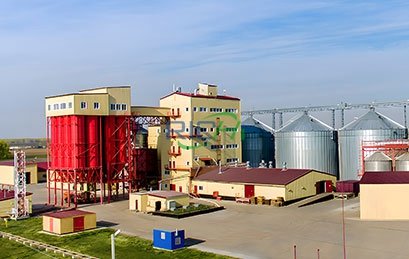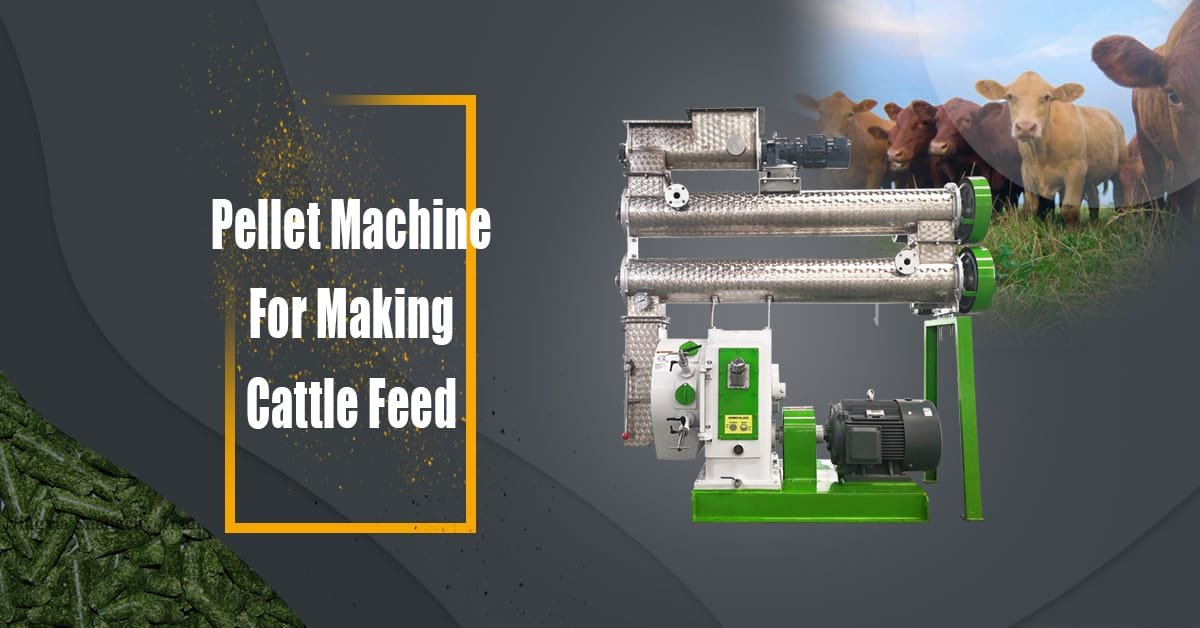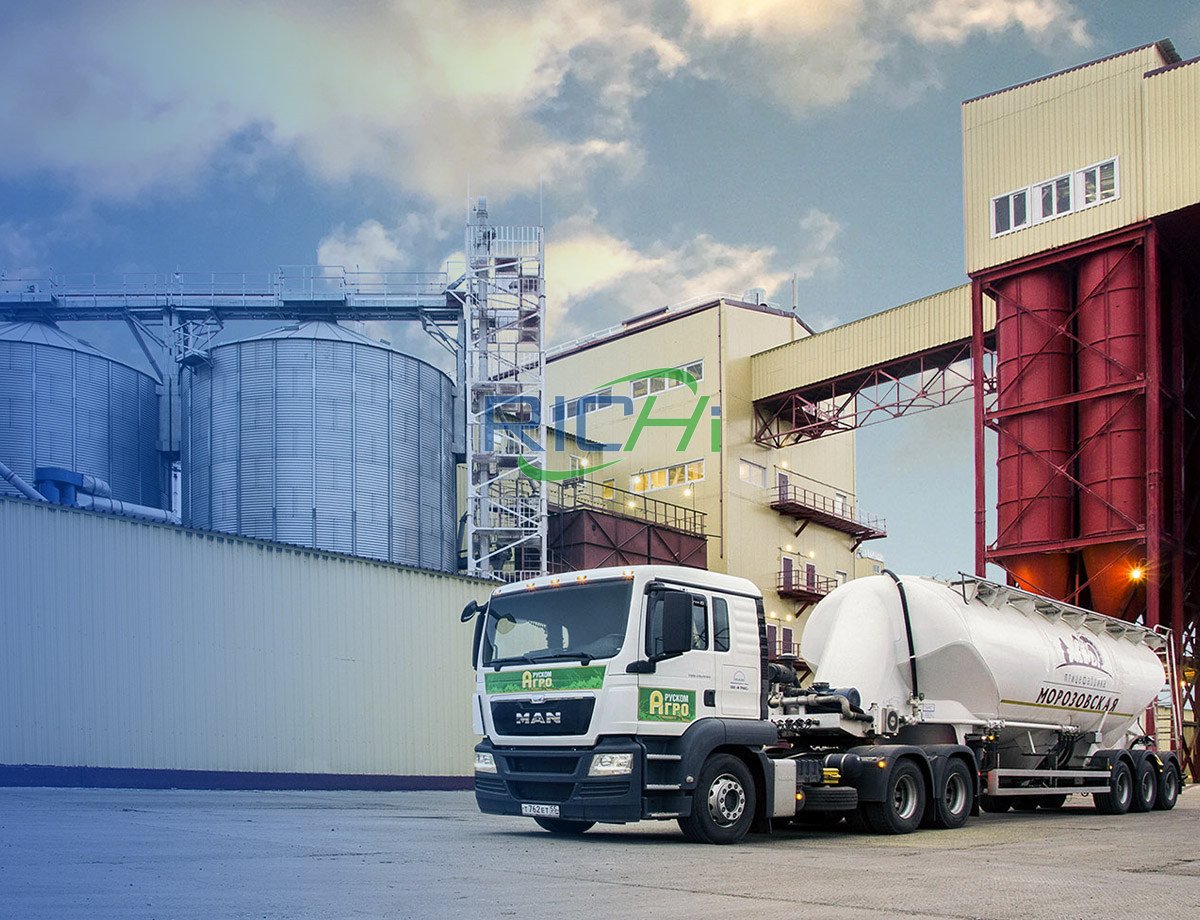As the global agricultural sector moves toward sustainability, there is an increasing need for solutions that reduce waste, conserve resources, and optimize production. Alfalfa pellet making machines are emerging as critical components in this transformation, aligning with the broader goals of sustainable farming practices. This article explores how these machines are not only revolutionizing animal feed production but also contributing to the overall sustainability of agricultural systems.

1. Sustainable Farming: A Growing Imperative
A. The Push for Sustainability in Agriculture
Sustainability in agriculture has become a global imperative, with climate change, resource depletion, and soil degradation threatening the future of food production. As populations grow, the need for agricultural systems that maximize efficiency and minimize environmental impact becomes even more pressing.
In response to these challenges, farmers and industry stakeholders are increasingly adopting sustainable farming practices. These practices focus on improving resource efficiency, reducing environmental harm, and maintaining long-term productivity. Alfalfa, known for its nitrogen-fixing capabilities and soil enrichment properties, plays a pivotal role in these efforts. By converting alfalfa into pellets, farmers can enhance the overall sustainability of their operations while addressing the growing demand for animal feed.
Related post: Grass Pellet Machine
2. Alfalfa Pellet Making Machines: A Cornerstone of Sustainable Animal Feed Production
A. Optimizing Feed Production for Efficiency and Sustainability
One of the core challenges in livestock production is providing high-quality, nutritious feed while minimizing costs and environmental impact. Alfalfa pellets offer a sustainable solution, as they are compact, energy-dense, and easy to transport and store. Alfalfa pellet making machines are integral to this process, offering several key advantages:
i. Reduced Feed Waste
Alfalfa pellets are designed to minimize waste compared to traditional feed forms like hay or loose forage. The compact, uniform nature of pellets ensures that animals receive the right amount of nutrition, with minimal feed loss. This contributes to greater feed efficiency and reduced waste, key components of sustainable farming.
ii. Conserving Resources
Traditional methods of feeding livestock often involve large quantities of bulky hay or other forages, which require extensive land and resources to produce. With alfalfa pellets, much less space and water are needed for storage and transport, which results in resource conservation. By using pellet-making technology, farmers can optimize the use of available land and inputs while maximizing output.
3. Circular Economy and Waste Reduction
A. Turning Agricultural Waste into Valuable Resources
One of the central tenets of sustainable farming is the adoption of a circular economy—a model in which waste from one process is repurposed and used in another. Alfalfa pellet making machines can help farmers achieve circularity by allowing them to process agricultural waste into valuable products.
i. Recycling Alfalfa Stems and Residues
Alfalfa production results in large quantities of stems and other residual materials, which are often discarded or underutilized. With the use of pellet making machines, these byproducts can be processed into high-energy pellets, which can serve as animal feed or biomass fuel. This form of waste recycling reduces the environmental footprint of alfalfa production and ensures that no valuable material goes to waste.
ii. Utilizing Other Agricultural Waste
In addition to alfalfa, farmers can also blend other agricultural byproducts—such as corn stalks, straw, or food waste—into the pelleting process. These materials can be used to create multi-component feed pellets, which not only provide cost-effective feed options but also help reduce the amount of agricultural waste sent to landfills. This innovative approach aligns with the circular economy model by turning agricultural waste into valuable, high-quality products. (Related project: )
4. Enhancing Soil Health Through Alfalfa Pellet Use
A. Using Alfalfa Pellets as Soil Amendments
In addition to their role in animal feed, alfalfa pellets can also contribute to soil health—a fundamental aspect of sustainable farming. When incorporated into soil, alfalfa pellets break down and release essential nutrients such as nitrogen, phosphorus, and potassium. These nutrients promote soil fertility, improve microbial activity, and support healthy plant growth.
The high-quality organic material in alfalfa pellets can be used as a natural fertilizer in crop production. As more farmers turn to organic farming methods, the use of alfalfa pellets as a soil amendment can provide an environmentally friendly alternative to synthetic fertilizers, which often have harmful long-term effects on soil health.
5. Energy Efficiency and Reduced Carbon Footprint
A. Reducing the Environmental Impact of Pellet Production
As the demand for sustainable farming solutions increases, the efficiency of alfalfa pellet making machines is becoming more critical. Technological advancements in machine design are focused on enhancing energy efficiency, thus reducing the carbon footprint of pellet production. (Related post: Alfalfa Pellet Plant)
i. Energy-Efficient Motors and Components
Modern pellet making machines are equipped with energy-efficient motors and low-energy consumption components. These innovations not only reduce electricity costs but also help minimize the carbon emissions associated with feed production. By using less energy, alfalfa pellet machines contribute to a more sustainable, environmentally responsible production process.
ii. Renewable Energy Integration
In the future, alfalfa pellet making machines may also incorporate renewable energy sources, such as solar or wind power, to further reduce their environmental impact. This shift toward clean energy sources will make pellet production even more sustainable, aligning with the global transition to renewable energy in agriculture.
6. Global Adoption of Sustainable Farming Practices
A. Scaling Sustainable Practices in Developing Countries
Sustainable farming practices are increasingly being adopted around the world, with a particular emphasis on developing countries. As these regions face rapid population growth, resource scarcity, and environmental degradation, the need for efficient, resource-conserving agricultural technologies is critical.
Alfalfa pellet making machines are gaining traction in these regions as affordable, effective tools for enhancing feed production and supporting sustainable farming. By helping farmers improve feed efficiency, reduce waste, and integrate renewable resources, these machines play an essential role in driving sustainable agricultural development.
i. Cost-Effective Solutions for Small Farmers
In many developing countries, small-scale farmers face significant challenges in accessing affordable, high-quality feed for their livestock. Alfalfa pellet machines provide an accessible solution by allowing farmers to create their own high-nutrient feed from locally available resources. This reduces reliance on costly feed imports and enhances self-sufficiency in agricultural systems.
7. Conclusion: Alfalfa Pellet Making Machines as Key to Sustainable Agriculture
As agriculture continues to evolve in response to the challenges of climate change, resource scarcity, and global food security, alfalfa pellet making machines will play an increasingly important role in advancing sustainable farming practices. These machines offer a resource-efficient, waste-reducing, and environmentally responsible method for producing high-quality animal feed, while also contributing to soil health and renewable energy production.
By adopting alfalfa pellet making machines, farmers can optimize their operations, improve sustainability, and align with global agricultural goals. As technology continues to improve, these machines will be integral in shaping a future where agriculture is both productive and environmentally responsible.









